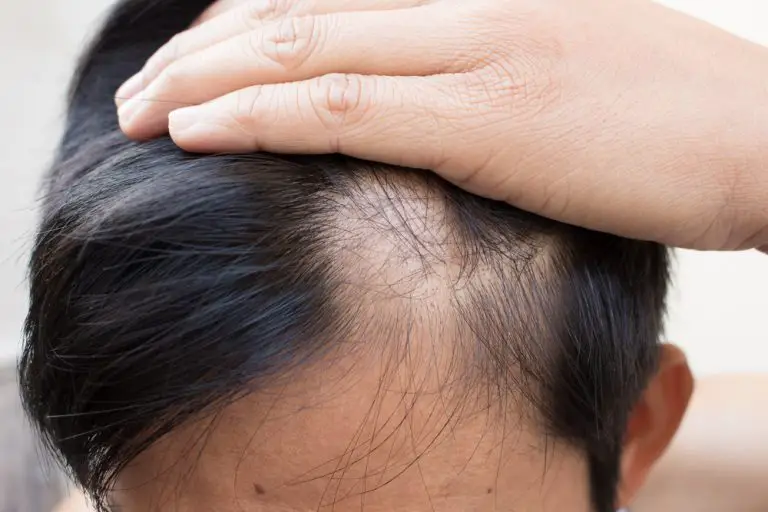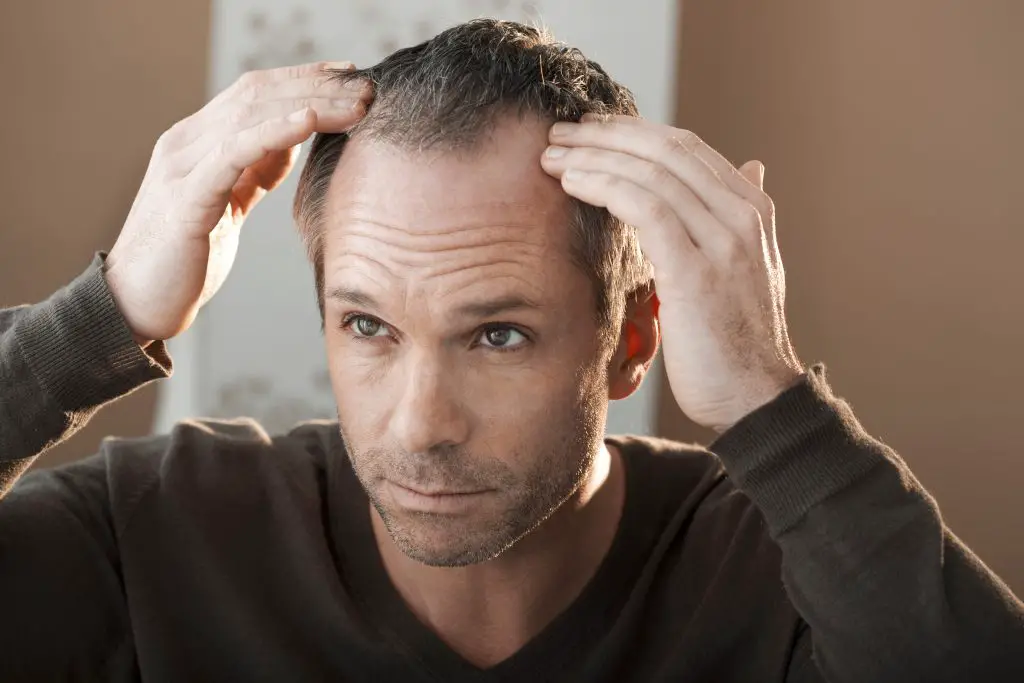
Page Contents
If you’re one of the many men and women reading this who are facing pattern balding, you’re probably in the investigative stage trying to find a solution to slow the process down. You’ve likely already heard that higher dihydrotestosterone (DHT) results in receding hairlines and thinning hair. Since DHT is a byproduct of testosterone, most people assume that their bodies are producing too much testosterone. While this seems rational, it is a bit more complicated than that.
Let’s dive into the different factors at play and how testosterone really does affect male and female pattern baldness.
Different Testosterone Forms
There are many different forms of testosterone that exist in your body. The “free” testosterone that isn’t bound to proteins in your body is the one that is most available to act within it. Albumin, a protein in the blood, can also have testosterone bound to it. However, most testosterone in your body is bound to SHGB protein (sex hormone-binding globulin). This protein isn’t active. While you might have a low level of SHGB, it is still possible to have a high level of the “free” testosterone in your bloodstream.

How Genetics Play A Role
Genetics play a large factor in whether or not you will face male or female pattern baldness. While the amount of DHT in your body does play a role, baldness is more linked to the sensitivity of your hair follicles to the testosterone.
The AR gene is what makes the receptor on your hair follicles interact with the DHT and testosterone in your body. If you have sensitive receptors, your hair follicles can be triggered by a smaller amount of DHT, making hair loss occur more easily. While other factors like age, stress, and diet can contribute to hair loss, genetics do play a significant role.
Treatments of Hair Loss
Now that we know the importance genetics and DHT play in hair loss, there are ways that you can slow the process down. However, the most important factor is to determine if DHT is truly the culprit. If you’re suffering from hair loss due to an oily scalp, stress, diet, or other medical condition, the following treatment options might not help. Get to the underlying cause first, and then choose your treatment route.
If DHT is the culprit, here are some of the best treatment options available to help slow down hair loss:
- Minoxidil – Also commonly known as Rogaine, this hair loss product is a topical solution that you apply directly to your scalp to help stimulate the hair follicles. Many have seen incredible results and even hair regrowth. However, once you stop using the treatment, the growth is put to a halt.
- Finasteride – This is a pill that requires a prescription. It blocks the conversion of testosterone to DHT, which will slow your hair loss. However, like other treatments, you’ll lose any results once you stop using it.
- Low-Level Laser Brush – Approved by the FDA, this brush provides laser therapy to the scalp in a non-invasive way. It has been proven to improve the condition of the scalp, making the optimal conditions for hair growth.
- Natural Oils and Homeopathic Treatments – There are dozens of different oils, herbs, and foods that can help block DHT on the scalp. Take a look through our other blog posts to discover a variety of methods to help your body naturally block DHT.
No matter which route you choose, it’s important to remember that you’ll need to be patient in order to see results. It can take a few months before any of the treatments show signs of improvement.
Tired of chasing down hair growth solutions without the results you’re after? Make sure you’re using the 3 hair loss products known to work before experimenting with alternative solutions. You may be surprised with how effective these 3 alone can be.






